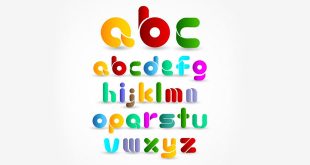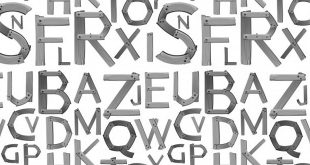Understatement Examples: Understatement is a figure of speech in which there is a contrast between the description and reality. As such, understatement can be used to reflect modesty, sarcasm, derogatory or complimentary tone. Understatement literally refers to what is not being said. In short, the gravity of the statement is …
Read More »What Are Adjectives: Different Types of Adjectives
How do you give compliments to a person who is quite appealing to you? You might use words like beautiful, gorgeous, good, handsome, pretty, cute, sweet, and so on. These complimenting words are called adjectives in English grammar. They are descriptive words, without the help of which expressing your opinions …
Read More »Zeugma Examples: Figure of Speech For Students
Zeugma is a fun rhetorical device, an important figure of speech, wherein a single word is used to denote two or more words in a sentence and is fraught with literal and metaphorical undertones. Like most other figures of speech, even this rhetoric device draws its name from the Greek …
Read More »Verbal Irony Examples in Literature: Figure of Speech
Characterised by carrying a meaning just opposite to the literal meaning, Ironies add fun to conversation. These statements become a part of our regular conversation, intentionally or unintentionally. Irony can be situational, dramatic or verbal. Situational ironies are purely unintentional – just like, Titanic, which was boasted as “100% unsinkable”, …
Read More »Simile Examples for Students and Children
Simile Examples for Students and Children: Ever seen or heard someone make far-fetched comparisons between two dissimilar things or ideas in course of his / her speech to communicate thoughts and words more intelligibly, not to say, interestingly. The literary device of comparing two entirely different things or ideas to …
Read More »Oxymoron Examples For Students And Children
Whoever finds English an exciting language to learn, will be familiar with the word ‘Oxymoron’. Oxymoron is a figure of speech in which two contradictory or inappropriate terms are either put together or appear side by side. The origin of the word ‘oxymoron’ can be traced back to two Greek …
Read More »Abstract Nouns Examples For Students And Children
A noun can be defined as something that describes a name, place or thing. There are several types of nouns such as common, proper, compound, predicate and so on. Of all these, an abstract noun is one that cannot be perceived by our five senses, i.e., touch, smell, sound, sight …
Read More »Commonly Misspelled Words in English Language
English is a strange language – some words are spelled as they are sound, some derive their spellings from an origin and some are, simply, exceptions to every rule! Commonly misspelled words are often referred to as interchanging or leaving letters out of a certain word, in writing. As it …
Read More »Types Of Verbs for Students and Children
A verb is a part of speech that describes an action, occurrence or indicates a state of being. A verb can be defined by what it does more than by what it is. It is the most important part of a sentence as it asserts something about the subject, linking …
Read More »When To Use A Comma
People often ignore punctuation unaware of the fact that the absence of proper punctuation might just kill the essence or the depth of a sentence. The comma was initially introduced with the intention of providing breath or halt, while reciting a particular fragment or a complete text; and it continues …
Read More » Class Notes NCERT Solutions for CBSE Students
Class Notes NCERT Solutions for CBSE Students

